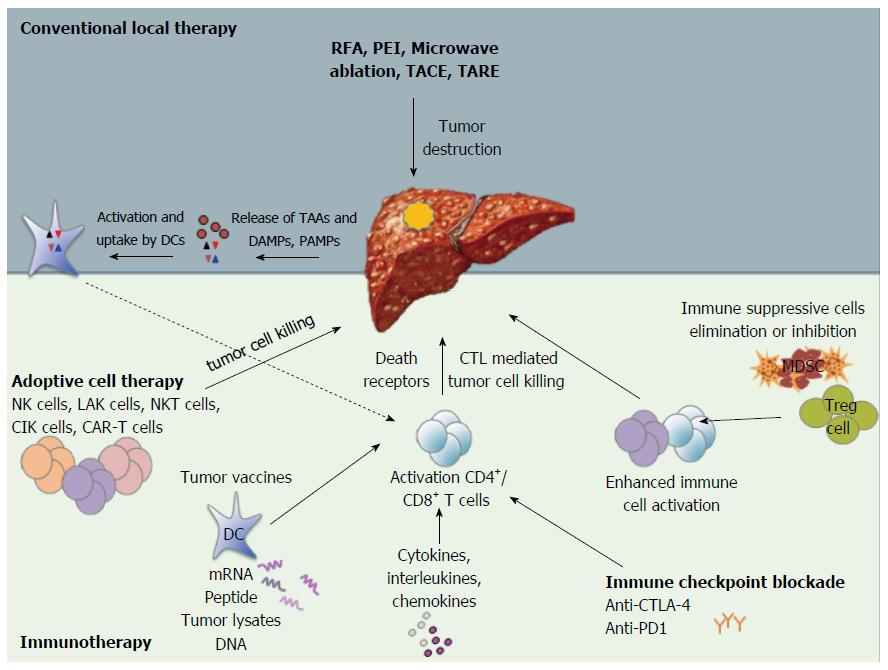Copyright
©The Author(s) 2016.
World J Gastroenterol. Jan 7, 2016; 22(1): 253-261
Published online Jan 7, 2016. doi: 10.3748/wjg.v22.i1.253
Published online Jan 7, 2016. doi: 10.3748/wjg.v22.i1.253
Figure 1 Immune-based therapies for hepatocellular carcinoma.
Tumor-specific T cells can be stimulated by several ways including adoptive cell therapy, tumor vaccines, cytokines or by inhibiting immune suppressive mechanisms (immune checkpoint inhibitors, depletion of Tregs or MDSCs). These tumor-specific T cells are able to kill the tumor cells in an antigen-specific way. Conventional therapies (RFA, TACE, PEI, microwave ablation, TARE) can destroy tumor cells, which result in the release of tumor antigens and danger-associated molecular patterns that can activate DCs resulting in the activation of tumor-specific T cells. RFA: Radiofrequency ablation; PEI: Percutaneous ethanol injection; TACE: Transarterial chemoembolization; TARE: Transarterial radioembolization; DAMPs: Danger-associated molecular patterns; PAMPs: Pathogen-associated molecular patterns; DC: Dendritic cell; NK: Natural killer; LAK: Lymphokine-activated killer; NKT cell: Natural killer T cell; CIK: Cytokine-induced killer; CAR: Chimeric antigen receptor; CTL: Cytotoxic T lymphocyte; Treg: Regulatory T cell; MDSC: Myeloid derived suppressor cells; CTLA-4: Cytotoxic T lymphocyte antigen 4; PD-1: Programmed-death 1.
- Citation: Aerts M, Benteyn D, Van Vlierberghe H, Thielemans K, Reynaert H. Current status and perspectives of immune-based therapies for hepatocellular carcinoma. World J Gastroenterol 2016; 22(1): 253-261
- URL: https://www.wjgnet.com/1007-9327/full/v22/i1/253.htm
- DOI: https://dx.doi.org/10.3748/wjg.v22.i1.253









